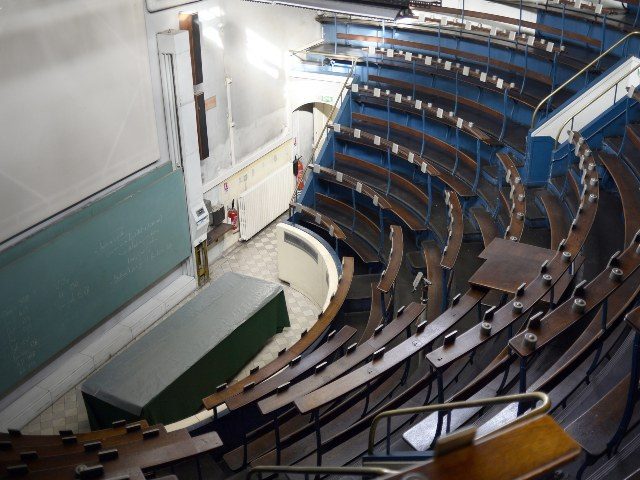Undergraduate college enrollment numbers this Spring are down nearly 5 percent from last year, meaning there are 727,000 fewer students attending colleges and universities in the wake of classroom disruptions stemming from the Chinese coronavirus.
Overall spring enrollment fell to 16.9 million from 17.5 million, marking a one-year decline of 3.5 percent or 603,000 students, seven times worse than the decline a year earlier, with undergraduate students accounting for a 4.9 percent drop (727,000 students), according to new data published by the National Student Clearinghouse.
“That’s really dramatic,” says Doug Shapiro, who leads the clearinghouse’s research center, according to a report by MPR News.
The report added that fall enrollment numbers had indicated the situation was bad with a 3.6 percent undergraduate decline compared with a year earlier — but experts were waiting to see if those students who held off in the fall would decide to enroll in the spring. It appears they haven’t.
“Despite all kinds of hopes and expectations that things would get better, they’ve only gotten worse in the spring,” Shapiro added. “It’s really the end of a truly frightening year for higher education. There will be no easy fixes or quick bounce backs.”
The data also shows that over 65 percent of the total undergraduate enrollment losses occurred in the community college sector, and that among all age groups, traditional college-age students have declined the most.
Conversely, adult students — ages 25 or older — show a 2 to 3 percent gain at public four-year and private nonprofit four-year colleges.
Moreover, while undergraduate enrollment is on the decline, graduate college enrollment has actually shown an increase, jumping by 4.6 percent, making that an additional 124,000 students enrolled in graduate programs.
Shapiro claims that this phenomenon is “kind of the educational equivalent of the rich getting richer.”
“Those gaps in education and skills will be baked into our economy, and those families’ lives, for years to come,” Shapiro insisted.
You can follow Alana Mastrangelo on Facebook and Twitter at @ARmastrangelo, and on Instagram.

COMMENTS
Please let us know if you're having issues with commenting.